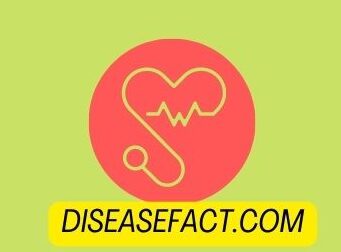Diarrhea is a condition characterized by loose, watery stools that occur more frequently than normal. It can be caused by a variety of factors, including viral or bacterial infections, food intolerances or allergies, certain medications, and other underlying medical conditions.
DIARRHEA CAUSE
There are several potential causes of diarrhea, including:
- Viral infections: Viral infections such as rotavirus, norovirus, and adenovirus can cause diarrhea, particularly in children.
- Bacterial infections: Bacteria such as Salmonella, E. coli, and Campylobacter can cause diarrhea, often as a result of contaminated food or water.
- Parasitic infections: Parasites such as Giardia and Cryptosporidium can cause diarrhea, particularly in people who have traveled to areas with poor sanitation.
- Food intolerance or allergies: Some people may experience diarrhea as a result of consuming foods that they are intolerant or allergic to, such as lactose or gluten.
- Medications: Some medications, particularly antibiotics, can disrupt the natural balance of bacteria in the gut and lead to diarrhea.
- Inflammatory bowel disease (IBD): IBD, including Crohn’s disease and ulcerative colitis, can cause chronic diarrhea and other digestive symptoms.
- Irritable bowel syndrome (IBS): IBS is a chronic digestive condition that can cause diarrhea, constipation, and abdominal pain.
- Stress or anxiety: Stress and anxiety can affect the digestive system and lead to diarrh
DIARRHEA TYPE
There are several types of diarrhea, which can be classified based on their underlying causes or characteristics. Some common types of diarrhea include:
- Acute diarrhea: This type of diarrhea usually lasts for a few days and is often caused by viral or bacterial infections, such as gastroenteritis.
- Chronic diarrhea: Diarrhea that lasts for more than four weeks is considered chronic and may be caused by underlying medical conditions, such as inflammatory bowel disease (IBD) or irritable bowel syndrome (IBS).
- Traveler’s diarrhea: This type of diarrhea typically occurs when people travel to areas with poor sanitation or consume contaminated food or water.
- Antibiotic-associated diarrhea: Some antibiotics can disrupt the natural balance of bacteria in the gut, leading to diarrhea.
- Food intolerance or allergy: Diarrhea may be a symptom of food intolerance or allergy, particularly if it is accompanied by other symptoms such as bloating, gas, or abdominal pain.
- Secretory diarrhea: This type of diarrhea occurs when the body produces excessive amounts of fluid in the intestines, leading to loose stools.
DIARRHEA SYMPTOMS
Diarrhea symptoms typically include:
- Loose, watery stools
- Abdominal cramping or pain
- Nausea
- Urgent need to have a bowel movement
- Bloating or gas
- Loss of appetite
- Dehydration, which can cause symptoms such as dry mouth, dry skin, fatigue, dizziness, and dark-colored urine.
DIARRHEA SIGN
- Loose, watery stools: This is the primary sign of diarrhea, where the stool becomes more liquid and frequent than normal.
- Abdominal pain and cramping: Diarrhea may cause discomfort or pain in the abdomen, which can range from mild to severe.
- Nausea and vomiting: These symptoms may accompany diarrhea, particularly if the underlying cause is a viral or bacterial infection.
- Dehydration: Diarrhea can lead to fluid loss, which may cause symptoms such as dry mouth, thirst, weakness, and decreased urine output.
- Fever: In some cases, diarrhea may be accompanied by a fever, which is a sign that the body is fighting an infection.
DIARRHEA TREATMENT
The treatment for diarrhea depends on the underlying cause and severity of the symptoms. In general, treatment options for diarrhea may include:
- Fluids: Diarrhea can lead to dehydration, so it is important to drink plenty of fluids to replace lost fluids and electrolytes. Water, broth, and sports drinks can help replace lost electrolytes, while avoiding caffeine and alcohol is recommended.
- Diet modifications: Avoiding certain foods and drinks, such as spicy or fatty foods, dairy, caffeine, and alcohol, may help relieve diarrhea symptoms. Eating bland, low-fiber foods such as bananas, rice, applesauce, and toast (BRAT diet) can also be helpful.
- Medications: Over-the-counter medications such as loperamide (Imodium) and bismuth subsalicylate (Pepto-Bismol) can help relieve diarrhea symptoms. However, it is important to check with a healthcare provider before taking these medications, particularly if you have other medical conditions or are taking other medications.
- Antibiotics: If the diarrhea is caused by a bacterial infection, antibiotics may be prescribed.
- Probiotics: Probiotics may help restore the natural balance of bacteria in the gut and improve digestive health.
- Rest: Getting enough rest and avoiding strenuous activities can help the body recover from diarrhea.
